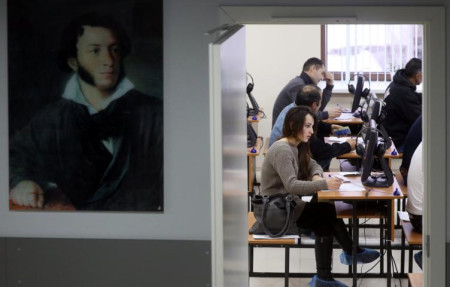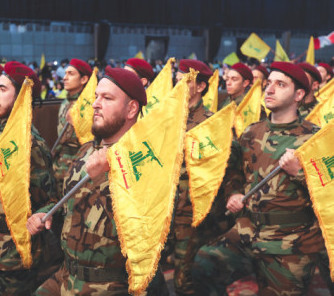
On September 30, it will be a decade since Russia’s limited military contingent entered into Syria. How has this military presence throughout the Arab Republic promoted respect for Russians, their culture and national character?
A bit of history. Diplomatic relations between Moscow and Damascus were established in April 1944, and in February 1946 an agreement appeared under which the Soviet Union recognized Syria’s independence ahead of French troops’ evacuation from that country. Military cooperation has been calculated since 1956, when the training of Syrian officers and technical specialists in Soviet military institutions began.
After President Hafez al-Assad came to power in Syria in 1971, military and military-technical cooperation between the countries skyrocketed: next year, as prescribed by the intergovernmental agreement, a USSR Navy logistics center was created in the seaport of Tartus on the Mediterranean coast. In 1971 to 2000, thousands of Syrian officers and technicians received military education in Russian military academies.
The civil war that began in 2011, and then the international terrorist intervention in the Syrian Arab Republic (SAR) put the country on the verge of complete loss of sovereignty and territorial integrity, the destruction of secular power and state transformation into a hub of the radical Islamic emirate covering Iraq, Syria and Lebanon.
In a critical situation, the Syrian government fell back on Russia for help, and its leaders decided to send their troops to that country in September 2014. Owing to the Russian military, over half of the SAR’s territory came under government control by 2018, and the most powerful armed formations of local radical and international terrorist groups were either defeated or blocked in the northwest.
Currently, the Republic hosts Russian naval and air bases in Tartus and the Latakia province (Khmeimim), as well as 10+ other stationary military facilities in various regions of the country.
Since 1960s, hundreds of thousands of Russian military advisers and specialists have been engaged in the formation and strengthening of Syrian army’s combat capabilities, training their personnel to use weapons and equipment. Both the military and locals have been treating Russians dressed in a specific military uniform with sincere respect.
The clout of the Russians has increased enormously in the course of Syria’s liberation from terrorists. So, 2018 saw local Sunni sheikhs appeal right to President Putin to maintain the presence of Russian military contingent and permanently deploy commandant's offices and a military garrison in the administrative center of Syria’s southern province of Deraa, the initial flashpoint of the civil war that broke out in 2011. The Russian command met the Syrians halfway and kept up to a company of its military police from the Chechen and Ingush battalions for almost a year.
The Russian military not only ensured the safety of people but also often performed functions of representatives of local authorities. During this period, they cleared all of the farmlands of tons of mines, unexploded shells and other explosive objects, restored war-destroyed water sources, and laid hundreds of kilometers of plumbing pipes. Thanks to the Russians, most militants who sided with the opposition laid down their arms. Many of them joined the government army altogether.
Russians in Syria have become a symbol of courage, hard work, honest attitude to duty, a model of respect for national culture and mentality, kindness and responsiveness, ease of communication, and supportiveness. And it was not only the military that gave rise to such a sentiment towards the Russians: tens or even hundreds of thousands of Syrians studied and graduated from Soviet and Russian civilian educational institutions. Currently working in our country are thousands of Syrian engineers, technicians, doctors, and other specialists. Many of them are married to Russian women and raise children with them. Also, thousands of students are being educated in Russia.
And on September 30, before the beginning of another academic year, a meeting was held at the SAR’s Ministry of Education featuring a speech by chief Russian language mentor Bassam at-Tawil to sum up his colleagues’ performance as regards popularizing language studies and research-and-logistics support of the educational base. 39,500 students will learn Russian in secondary schools this academic year, he told the national SANA agency. The Ministry has 190 teachers on staff, distributed across 217 schools. Teachers are trained both in Russia and at the Damascus University’s Foreign Languages Faculty. In addition, a large group of Syrian teachers are taking optional courses in Russian literature at the Russian Cultural Center in Damascus.
Bassam al-Tawil notes the growing interest of Syrian youth in learning Russian as their first foreign language each and every year, who hope to get public grants in the future to allow them study at Russia’s higher and secondary institutions. Including military ones, because this profession is both in demand and highly popular in the East.
At the meeting, Deputy Minister of Education Rami al-Dalli announced that secondary school seventh grades will get 5,000 copies of the Russian Language Curriculum manuals in 2024, jointly prepared by specialists with the two countries’ relevant Ministries. The manual was issued and donated to Syria by the World Christian Union, with the first 1,000 books transferred to schools in the provinces of Damascus, Homs, Tartus, Latakia, Suwayda, and Deraa.
According to organization head Alexei Cherkesov, every year a thousand students from Syria get annual scholarships to study at Russian universities, and there are currently 5,000 of them visiting colleges and universities in Russia. And four years ago, the SAR’s Education Ministry launched six interactive classes for online studies of Russian.
Notably, Iran has also stepped up its activities in recent years to popularize the Persian language among Syrian youth. Even despite grants and other preferences, the interest in learning Russian is enormously higher: teaching Farsi is often accompanied by imposed religious commitment given Iran's expansionist policy in the region. And the latter fact is hardly supported by the broad strata of the Syrian population.









